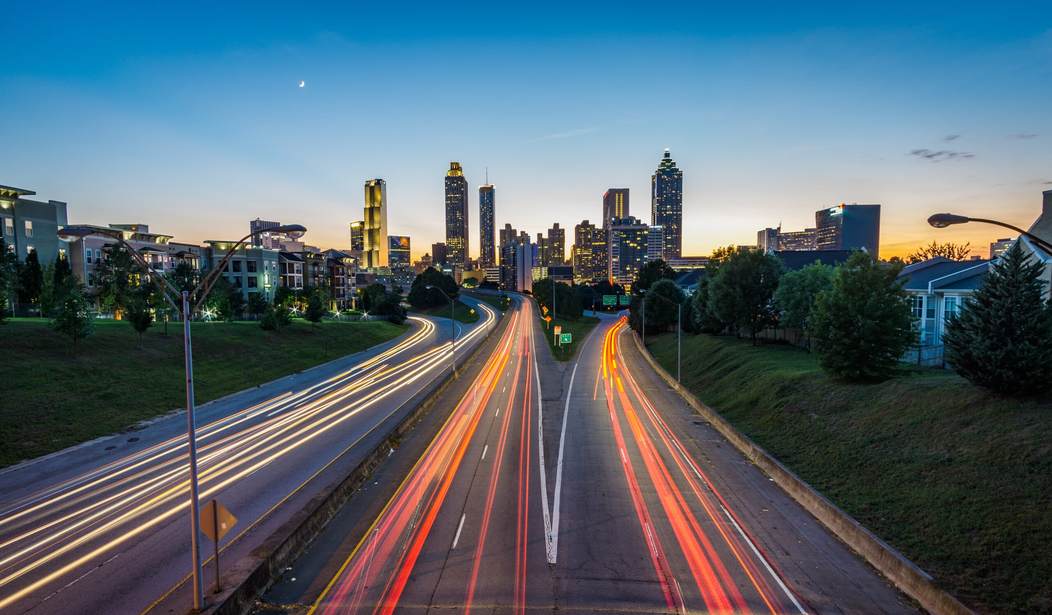For decades, Atlanta Magazine was a terrific source for local interest stories. Its restaurant and entertainment recommendations were second to none, and the periodical featured sparkling writing from some of the modern South’s best writers like Anne Rivers Siddons, Terry Kay, and Pat Conroy.
Atlanta Magazine inspired me as a writer and Southern culture enthusiast for years, but as time went on, the magazine drifted further to the left. I know that’s not all that shocking, since Atlanta the city is a left-wing hotbed of Democrat dominance and alternative lifestyles.
That leftward lurch at Atlanta Magazine was by design, of course. After facing criticism that the magazine’s coverage geared toward the high-end, ritzy Buckhead area of Atlanta — in other words, the whitest, least weird part of town — editors took pains to make sure Atlanta Magazine highlighted aspects of the city’s culture that appealed to the left.
A Washington Post piece neatly summarizes the shift:
Atlanta staffers resolved to more fully represent their city, commissioning more Black writers and spiking the usual fare of city-living stories with reports on the protests against plans to develop a police-training compound in a forested area near a Black neighborhood, the city’s unregulated night club scene, and a state law banning medical treatment for transgender adolescents.
(For the record, the training compound isn’t just for police; it’s for first responders of all stripes. The “forested area” is a former prison farm, while the residents of that black neighborhood support more training for law enforcement. But does it really matter? At the Washington Post, objective reporting dies in darkness.)
Related: Has Atlanta Seen the Light?
Atlanta Magazine dove head-first into race-related coverage in 2020 — you know, like everybody else on the left — and it courted controversy this spring with an issue about the city’s brunch scene featuring a drag queen as the cover model. The Washington Post characterizes this leftward tilt as the magazine’s effort to “reflect the evolving reality of Atlanta, one of the Blackest, queerest cities in the South.” (When you’ve fixed your eyes from their permanently rolled position, read on.)
All of this devotion to highlighting anything left-wing about Atlanta has created tension between the woke-as-a-joke writing and editing staff at Atlanta Magazine and its publisher, who is less of a doctrinaire leftist. It’s been going on for years; the Post reports that publisher Sean McGinnis overrode editors in late 2018 when a Super Bowl article featured an image depicting Colin Kaepernick.
But the aggravation came to a head earlier this summer at a meeting between McGinnis and the Atlanta Magazine staff. At the meeting’s outset, a nervous McGinnis told the team, “I don’t touch politics, as much as I’m tempted to jump in the fray,” but he began to highlight recent topics he considered “divisive.”
“Black Lives Matter movement and how you feel about that then and now, the Trump effect, the stolen elections, defund the police, legislation around pro-life heartbeat bills, bathroom bills, voting access, election security, transgender,” the publisher elaborated. Then he proceeded to toss a few more woke sacred cows onto the grill.
“More recently you start to delve deeper into issues around the impact of Dylan Mulvaney and Bud Light and Target and Riley Gaines versus Lia Thomas and the White House pride celebration,” he added, pointing out stories that Atlanta Magazine touched on even though none of them directly dealt with the city. (Of course, the Washington Post characterized the stories as “topics animating the Republican Party’s base and conservative media.” Fairness dying in darkness and all that.)
McGinnis even asked if it was standard operating procedure to use confusing pronouns, which one editor said was common practice. The publisher viewed the practice as “taking a stance.”
After the meeting, McGinnis emailed the editor-in-chief and said that the meeting served to confirm his “opinions regarding the direction and content of the magazine” and added, “it’s clear to me that the staff does not want to accept accountability.” He requested that the editor submit “a complete editorial outline of each issue with enough time for review and discussion of any topics that I believe warrant further discussion.”
Oof! McGinnis did admit that these concerns came from the CEO and co-founder of the publishing company, Hour Media, which helms 20 other similar magazines across the country — so they know what they’re doing. Needless to say, this didn’t go over well with the wokes at Atlanta Magazine. Three of the six editors are quitting, and the editor-in-chief announced her retirement at the end of the year.
This goes to show what we’ve seen with the left a million times: if you’re not down with wokeness and leftists can’t cancel you, they will take their ball and go home when they don’t get their way. Maybe Atlanta Magazine’s coverage was too swanky for too long, but the problem is that the pendulum swung too far the other way. If these people had balanced their woke coverage with stories that truly reflected the diversity of a not-totally-woke city and its decidedly not-woke metro area, the fateful meeting may not have taken place.










Join the conversation as a VIP Member